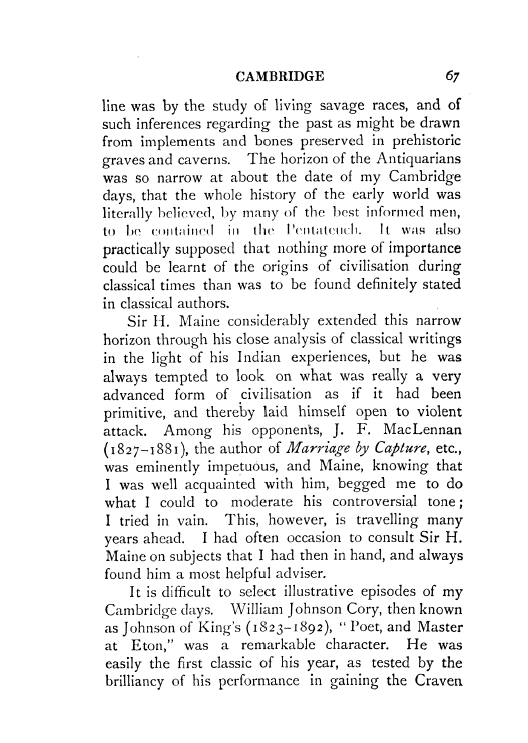CAMBRIDGE 67
line was by the study of living savage races, and of such inferences regarding the past as might be drawn from implements and bones preserved in prehistoric graves and caverns. The horizon of the Antiquarians was so narrow at about the date of my Cambridge days, that the whole history of the early world was literally believed, by many of the best informed men,
to be COIltflm eel ill tire; I'c ~~tutc <« l~. It Was also
practically supposed that nothing more of importance could be learnt of the origins of civilisation during classical times than was to be found definitely stated in classical authors.
Sir H. Maine considerably extended this narrow horizon through his close analysis of classical writings in the light of his Indian experiences, but he was always tempted to look on what was really a very advanced form of civilisation as if it had been primitive, and thereby laid himself open to violent attack. Among his opponen"ts, J. F. MacLennan (1827-1881), the author of Marriage by Capture, etc., was eminently impetuous, and Maine, knowing that I was well acquainted with him, begged me to do what I could to moderate his controversial tone ; I tried in vain. This, however, is travelling many years ahead. I had often occasion to consult Sir H. Maine on subjects that I had then in hand, and always found him a most helpful adviser.
It is difficult to select illustrative episodes of my Cambridge days. William Johnson Cory, then known as Johnson of King's (1823-I 892), " Poet, and Master at Eton," was a remarkable character. He was easily the first classic of his year, as tested by the brilliancy of his performance in gaining the Craven

